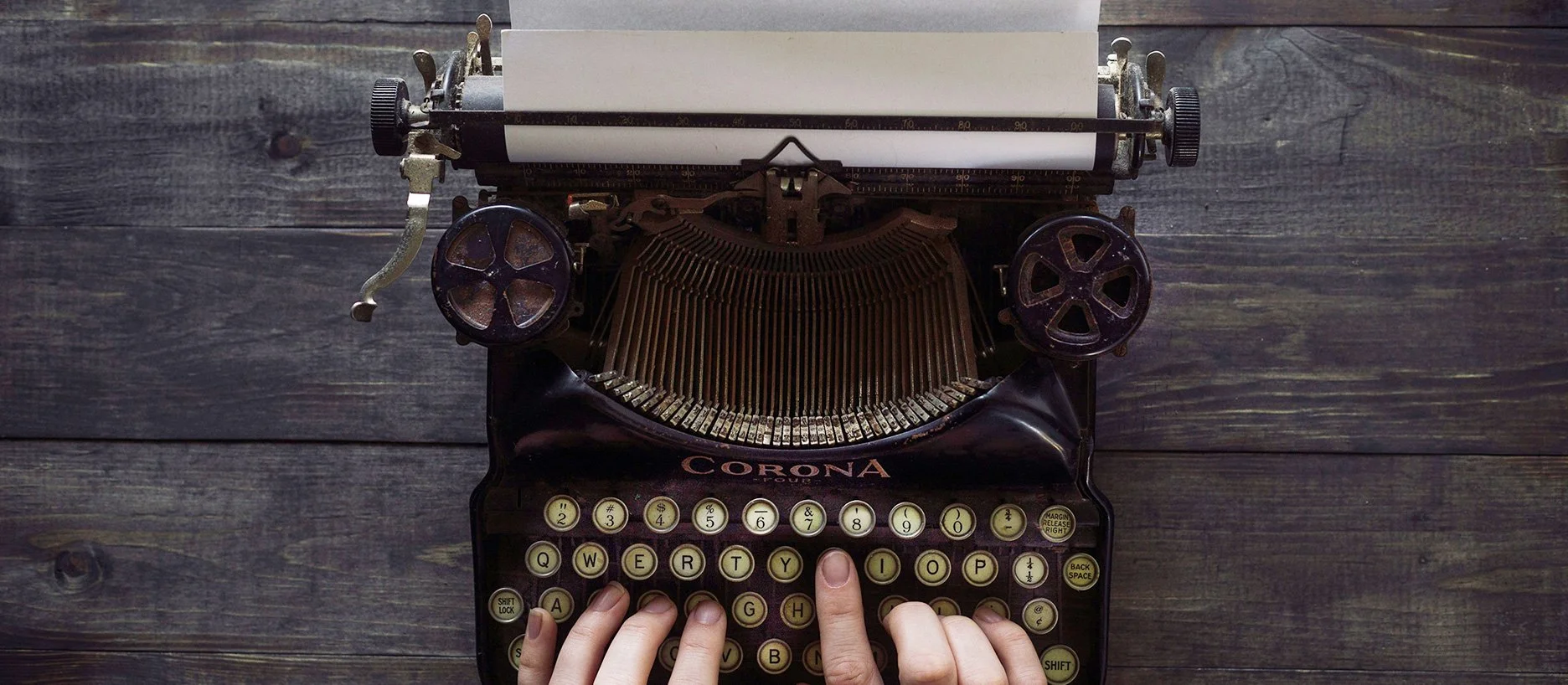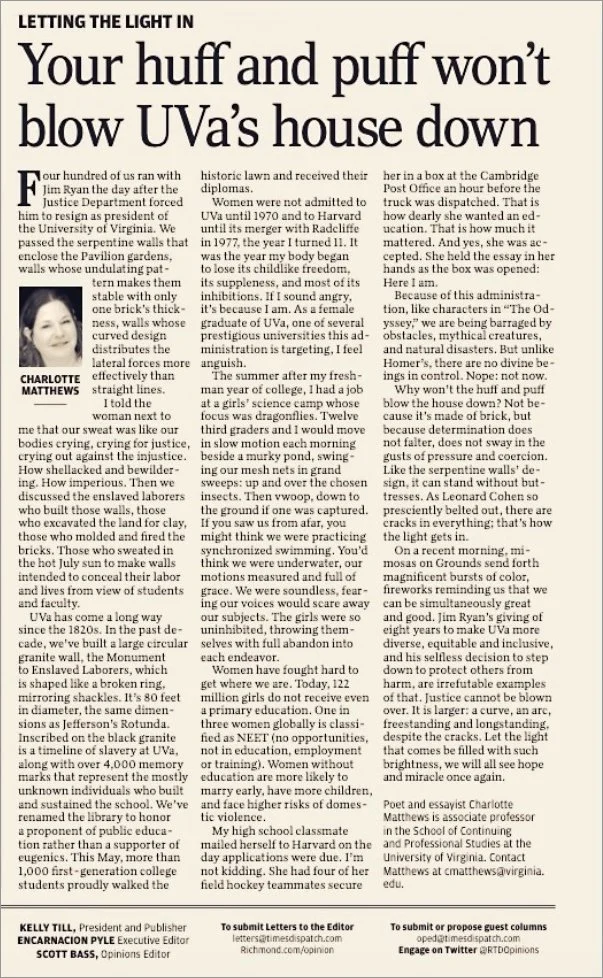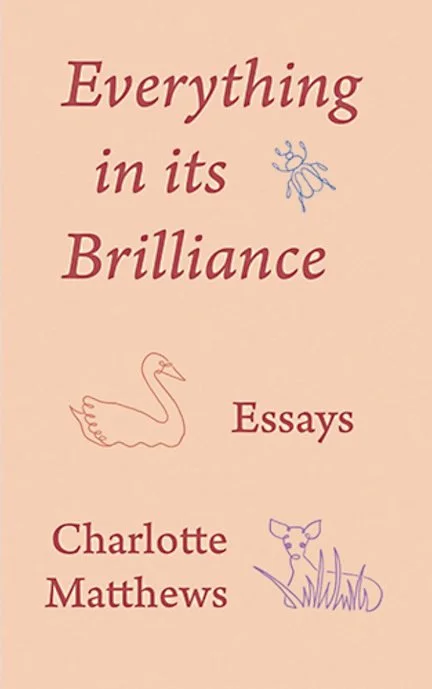writings
selected works
Taking My Dog to The Opera
Who would have thought he’d sit
so still so long, but he settles right
into our row, props his head on the velvet
armrest basking in the company
of strangers. And while I cannot say
whether or not he will follow the plot
—it’s Handel’s Rinaldo—he sure looks
enraptured, no place in the world
he’d rather be. A big galumphy lab,
the kind who clearly skips no meals,
he drops his playbill and the woman
across the aisle offers hers faster than you
can say jack rabbit. He must stir something
in her, look a bit like her childhood dog
who abided bedside for the two full weeks
she fought scarlet fever. In act two, when
Goffredo’s crew launches the boat,
my dog looks stage left, checks out how
they’ll pull this one off, turns despondent
the moment they take advice from a magician
—of all people. He’s seen all this before,
barely has the heart for another human,
helpless, wrecked, and stranded,
clinging to a rock beside the stormy sea.
Given the choice he’d rather
chomp on popcorn in front of Monster
Trucks because that high school boy
really made something out of what he had:
discarded car parts as a ticket out of town.
Still, my dog stays all the way to curtain call,
sniffs the lady across the aisle, walks me home.
— from Gulf Coast Journal
Field Guide to Gentleness
A man sits the last four years
outside the gorilla cage watching
the eldest male swing between
branches of pale, uprooted trees.
The gorilla sits with his back
to the man who sits with his back
to me, every day on his folding chair,
every day the roar of tourist voices
reverberating off cinder walls,
every day his friend behind bars.
When the ape dies in early summer,
and the man stops coming to the zoo,
he explains for the radio:
now I am the one in the cage.
How he is able to wake
each morning when even the trees
are holding their breath,
remains a secret I will never know.
Like all great loves,
this one ends in death.
Draw with Your Eyes Closed
On Fridays, we drew animals with our eyes closed. Mrs. Plath said it could be anything we wanted. So, there we were: 25 six-year-olds bent over manila paper, crayons in stubby fingers, evoking the unseen world, the contents of our imaginations. On the eight-track was jazz: Charlie Parker or Billie Holiday.
Once it was time to share what we’d created, Mrs. Plath let us title them. Some were easy. “That’s a horse eating,” a few of us would belt out, and it became Horse Grazing. But others were trickier: Minnows Hiding or Sea Otters Sleeping. And they were even holding hands like they do in real life. One I recall was Giraffes Right before Naptime. Their eyelashes were astonishing, large and thick, living creatures all on their own.
Looking back, I see this whole endeavor as revolutionary. Lying on our bellies on the carpet or staying put at our desks, not one of us fidgeted, not one complaint. After that, she pinned our masterpieces on the corkboard, a new animal exhibit each week. When Henry Greenwalt composed a great horned owl with perfect tuffs on top, Mrs. Plath said they were formidable birds. And so that’s what we discussed for the rest of the day: the attributes of the great horned owl. She described comb-like feathers, which allow them to fly in silence. That’s why they are such capable hunters, able to swoop in on their prey unnoticed.
Decades later, my six-year-old drawings nothing more than a vivid memory, I am at the grocery store, distracted by the radishes: daikon, pink lady, black. I don’t even like radishes. But my friend Nicole once painted a bunch, and they were so bright and lifelike I couldn’t stop seeing them. No way could I paint them myself. No task seemed more improbable. Instead, I write, creating worlds I cannot see for unknown readers to pin on their corkboards.
Radishes are members of the mustard family, Brassicaceae. Which is a great word and makes me remember how my mother would quiz me on Latin declensions as she taught me to set a table. How exacting she was: position a service plate –one you’ll never eat from– at each place. Then, a salad plate and a soup bowl are placed in the center of each setting. Next, set the bread plate to the left with the butter knife on it, handle facing right. One day, she even brought out a ruler and measured.
But the thing is, she never entertained, never hosted. Not once can I recall her having anyone over for dinner. Not even tea or coffee. She spent her days avoiding what she felt, reading or mending books at the library, running the occasional errand, taking the dog to the vet, or a check to the bank. Proper table setting was her version of silent drawing.
The Portuguese have no word for loneliness. The closest is saudade, a kind of melancholy. But no word can encapsulate how it feels to have a barrier between yourself and the world. I am eight, and winter light bathes the grain of the walnut table. My mother and I set two salad forks on the crisply ironed napkins. And we are happy for this one parcel of time.
— from, Vox Populi
Forceps Delivery, 1966
A woman is hauling herself out
of a yellow top cab into the February air.
The nurse standing beside the wheelchair
has a bland face, and the hospital doors open wide.
The woman is frightened, accustomed, as she is,
to being the one in control. Even as a child she
would first read a book’s ending so she
would know what she was in for. But soon
she’ll be put to sleep on her back, her feet
in stirrups, so I can be pulled into the light of day.
“When you say to me I believe, / it holds much power”
— How to Claim Silence
Ascension
This time the dream is about sacrifice:
who is willing to give up their life
for another, who will tell the truth
when the house burns down.
Next door is the anatomy classroom
where a cadaver rests
on the formica table. Each day I think
of going to see it, how I’d lift
the sheet back to the face
of someone I’ve never known,
skin paler than wax
and much more fragile.
My mother was most alone
in the company of others.
She could close herself in
in a way I have never seen
like the homeless woman
who wanders the city
assuming a life that can’t be
found in any house.
Right now students perch next to
the replica of a skeleton, counting ribs,
writing down what they’ve found
as if to report some truth.
If, at last, all things are fire,
look up there:
a hot air balloon hovers mercilessly
over the November field.
Tell Yourself a Story
To fall asleep she makes lists:
who still mow their own yard,
what books are due at the library.
This is how she becomes
tired enough.
I call to say
the fields have texture
like corduroy.
In one direction
run furrows of the plough,
in another, red top hay
mottled as linen.
Beside the field there’s
a new fence of woven wire
in perfect squares,
the creek’s shadowless water
layered with leaves.
She goes to the window
over the street where cars
are parked up close to the curb
to look out at the corner,
the few stars overhead.
In the pasture three chestnut
horses wear masks of netting
so the grass at their hooves looks
fractured as graph paper.
At dusk they must be half blind.
I want her to know this,
but it is later than I thought.
Soon she’ll come to visit
so we can drive to where people
sit out Sunday afternoon
on their porches,
not even talking.
I tell myself at least you’re trying.
At least she would have liked this.
How To Claim Silence
When you say to me, I believe,
it holds much power.
But the mind wanders
more readily than the body.
That’s why the coon dog,
bone tired, circles
the coil rug over and over,
steadying her mind.
Orchard blossoms
piteously bright,
I have the urge to climb
the ladder, wrap my hands
round the top rung,
let go with my feet.
Let’s say it
this way: in the East,
if you circumambulate
a sacred place,
you acquire merit.
I pace around my mother
as she reads in her wingchair,
making of the rug’s perimeter
a balance beam, following
the flower pattern as it passes,
waiting for something
she is never going to say.
Letting the Light In: Your Huff and Puff Won’t Blow UVa’s House Down
—from Richmond Times-Dispatch, August 8, 2025
Fog Count at Fluvanna Women’s Correctional Center
I’m in a week-long training, learning things that blow my mind. As the instructor said on day one, you don’t know what you don’t know. Say that slowly, and it makes more sense. You don’t know what you don’t know.
Days for the incarcerated are portioned like beads into segmented, see-through boxes, a few bright or holding hope, but mostly not, mostly drudgery. The count happens four times a day—at least. That means the whole place shuts down: no movement while the wardens and officers tally the women. Because the campus—what a misadvertised word—is large with green space, on mornings when fog has come off the Blue Ridge Mountains, they look for women on the outskirts. The count takes longer as they scour the campus, making sure no one is crouched under a shrub near the northwest corner.
In January, I’ll teach these women. I’ll come to where they sleep and eat and, if they are lucky, have a job in the cafeteria or cleaning floors. Some will be there for the rest of their lives. Some have been inside for decades. When I visit the facility, I’m told I cannot bring anything, only car keys. They’ve run extensive background checks. But when I enter the building, the warden at the desk acts like he’d rather be getting a root canal than talking to me. He is impatient and demanding, then instructs me to step inside this monolithic machine that looks like a throwback from the 70’s. I find out it’s a full-body scanner and they will see my insides, down to the organs.
When I ask if there’s any way we can skip that, he laughs in my face. When I explain I’m perfectly fine with a strip search, even a cavity search, explain I cannot have more radiation after all the cancer treatment, he says no. Just that: no. The officer watching the monitor as I’m in the machine pokes his head out and says I’ve hidden a bag in my chest. I tell him, no, it’s my implant, it’s where they lopped off my breasts and stuck in silicon. This seems to satisfy him. He goes back to looking at my insides.
Disbelief and suspicion drone through the cinderblock walls, ricocheting off the tiled floor. I think the world is not a cup filled with sunlight. There’s a shrill noise to my left, and a door slams, and a woman screams, I want my baby, over and over and over again. A warden struts out with a blanketed newborn in an infant car seat, hands it to an officer, who leaves the building. I later learn that it’s called separation day. I learn that pregnant women are shackled even in labor. They are allowed to have their babies with them for one week, then they are taken away. Some women express milk which volunteers take to the foster family, but they are few and far between. Most will never see their children again.
I want to be a backup singer in a mid-sized band. I’ll wear a flared skirt and stand to the side, one of many, dozens of us in line holding castanets and harmonizing in a way that cracks the world open. Beside me will be a woman who has pulled two decades in this facility but is now out. Our voices will float over people who’ve come to forget about their lives for the night.
— from, Vox Populi
The World I Cannot Catch
Last week a woman sued Kraft
claiming it takes longer to microwave
their mac n cheese than advertised.
She’s in a hurry, so much to get done.
Not enough hours in the day.
And the box said it only takes three
minutes to make a single cup.
She says they’re wrong, says they
didn’t account for stirring the water,
letting the cheese thicken. So, a lawsuit.
Because she would not have bought
the stuff if she’d known the truth.
Across the road, my neighbor’s wife
is dying. The hospice car’s logo reads
home care forever. At the mailbox
he tells me she might have a couple more days,
if that. When I go see her, she holds my hand,
and hers is warmer than I’d expected, softer.
Like she’s just had a bath. Like she’s all ready
to get tucked in for the night, flannel gown
with pink roses, Goodnight Moon waiting.
But there’s the click and puff of the oxygen
concentrator at her side, and January’s afternoon
light throwing shadows on the wood floor.
None of us can ever know what we don’t know,
all the miracles that go unseen fall away,
what labyrinth has brought us to this moment.
She and I sit for a long time until she breaks
the silence, lifts her hand to the chickadees who flutter
at her window feeder, declaring she hopes they’ll
keep on coming back long after she is gone.
—from Rattle #86, Winter 2024
“When I read in the paper that our local Kmart in Charlottesville was closing, I took myself on a field trip there, and the experience was startling. The emptiness of the place resounded. So this poem is a reporting on that trip.”
— Charlotte Matthews
KMART’S CLOSING
and everything’s on sale.
Even the bathmats look beleaguered,
aware of their uncertain future.
I buy a miniature plum tree at half price,
but when I get it to the car and place it
on the floorboard of the backseat, it looks
at me regretfully, like both of us are doomed.
Me and the plum tree done for.
Long gone are the blue light specials,
which could happen at any moment,
astound you with a flashing light and siren
right in the middle of a store.
I tell all this to the oldest man in my
mindfulness group. He listens,
like you’d expect him to, then shows me
a photo of a metallic butterfly that floated
just this morning right over his yard.
—from Rattle #62, Winter 2018




















